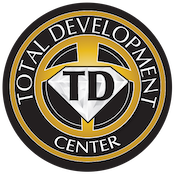Help, How Do I Choose a New Career?
Let’s face it — most of us make our career choice at 17 or 18, invest years into college or trade school and then jump into the job market. The only problem is that from 17 to 25, a lot of changes go on in your head, your perspective, and your goals. It’s normal. Most of the time, the career you chose at a young age can still work for you. But sometimes it can’t. How do you choose a new career?
Why you might want to choose a new career
Suppose you’ve been working a career you thought was going to be a lifetime commitment. But now you’re seeing the underbelly of the job and it doesn’t quite match up to your expectations going in. It happens.
Or perhaps you loved your job when you started out, but as you grew in your knowledge and skill, the job stopped being challenging and now you’re not having fun anymore. On top of that, there’s really no room to expand. And there’s definitely no opportunity to move up.
One of the best choices at this phase of the game is to invest in a career coach. A mentor. Someone who can see all the raw and developed talent you have and lay out some viable options. The second best choice is to go it alone with some targeted, intentional direction.
Here are a few steps to explore as you consider a new career choice:
Know what you’re good at
The first step in new career exploration is to discover what you’re good at. It was easy when you were a kid, because your mom could let you know. In Highschool you might have found a counselor, coach, or teacher who could do the same. But what about when you’re working a job that’s high competition? Or a job where you don’t really have a choice in what you do each day. At least not until you rank up the leadership board.
There are a few online tests you can take that will score your aptitudes. You could try out Myers-Briggs or Gallup’s CliftonStrengths assessments. And by all means, ask the people around you. But the very best way to figure it out is to sit down with pen and paper and map it out. Here are a few ideas to get you started:
- Jot down the top 5 things you love to do each week. It doesn’t have to be current-job related. Maybe you love to share soccer tips with the kids down at the park. Or all your friends call you to help them get organized.
- Consider the process involved in each of your top 5 loves. Do you have to research or organize materials? Do you pick a playlist before you and your friend workout together? Write these down under each item on your list.
- Look for patterns. Most of the time, there are similarities with things on the list. What skills do these take? What type of personality best handles these things? Which things are important to you?

Reflect on your current career
What first drew you to your current career? What do you really enjoy in your current job? Take some time to write another list. See how what you love now matches up with your skills covered in the first step. Overlap is a good thing here. Highlight the things that bring you the most joy.
Research
Now that you’ve discovered your top skills, explore careers that depend on these skills. Scroll through current jobs on Indeed or LinkedIn. Most job advertisements list the skills required. Explore some potential options in this way. Write down the job titles that interest you most. You might be surprised at what you discover!
Once you have a list of job titles, dive in a bit deeper to learn more about each job. Does it still sound interesting? What else is required to perform these jobs? What are the opportunities for growth in each one? Cross off any that don’t interest you after this deeper research.
Build your network
For the jobs that interest you, figure out who you can talk to to get an inside look at what the job is really like. Find out what their day-to-day life is like. Ask what they enjoy the most. What skills are top of the list to make the job all it can be? Is there anything they don’t like about their job?
See if you can volunteer somewhere in the industry. There might be an opportunity to shadow someone on the job. Hands-on experience is usually the very best teacher, and will give you more insight than watching YouTube videos or internet research.
Take some classes
If you find a job that really sounds interesting, see if there are some classes you can take to grow your knowledge. These classes will also look great on your resume! Keep a wide perspective on the skills needed. Even a few business classes can help your job performance in almost any career.
Be patient
It’s difficult to be patient when you’ve decided to change careers. But the last thing you want is to quit your job without something else lined up. Consider a gradual career entry. Is your new career choice something you can dive into now as a side-hustle until it’s running smoothly enough for you to leave your current job?
Don’t be rash. Your attitude matters throughout the process. Follow a step-by-step intentional plan to switch up careers. Consider working with a career coach or mentor. Enjoy the process and savor the final result. You’ll stop asking how you choose a new career and start telling people how much you love your job using your natural gifts.
